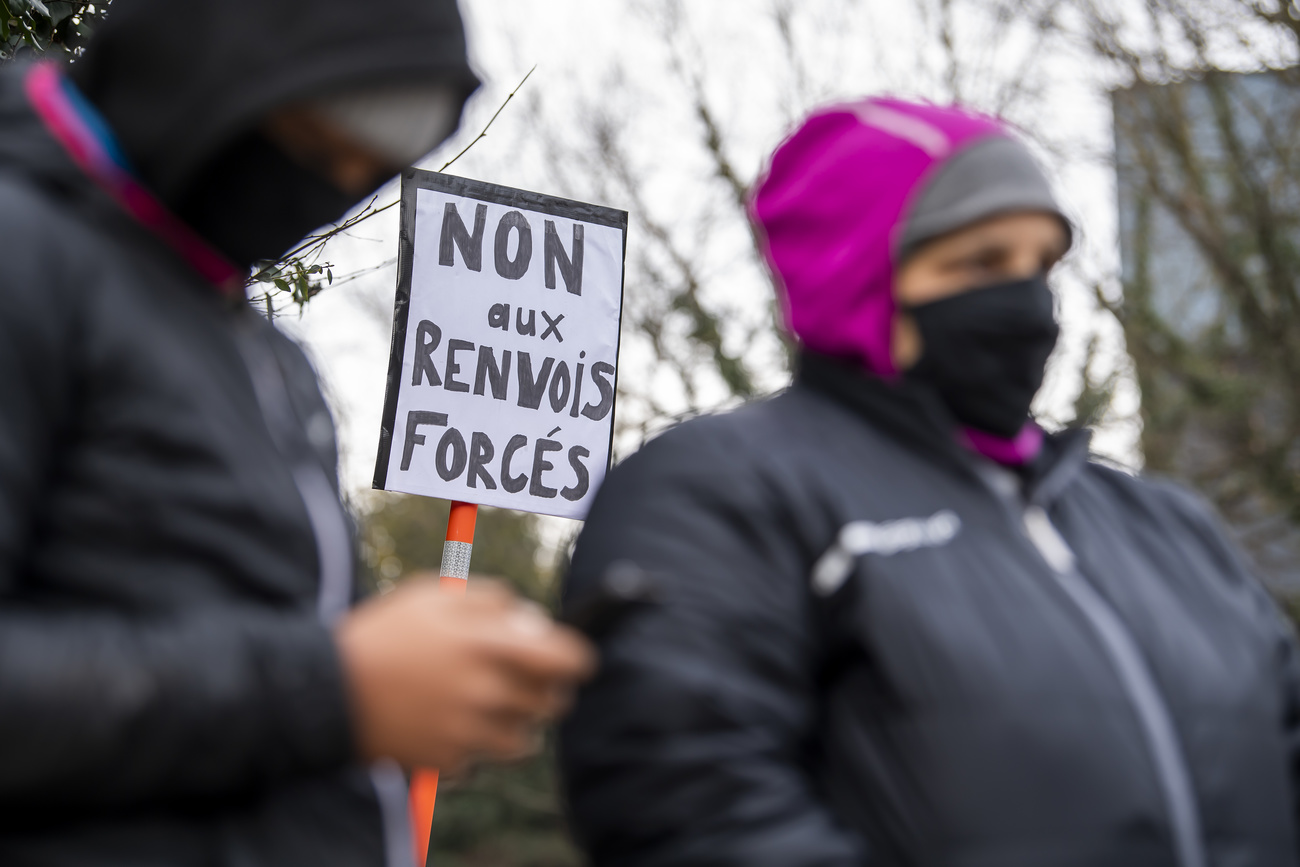
Restraints still used during migrant deportation, says watchdog

Swiss authorities are still using restraints during forced repatriations of migrants, regrets the National Commission for the Prevention of Torture (NCPT).
In a reportExternal link published on Tuesday, the commission said that staff carrying out the forced removals were generally professional and respectful. However, in some 62% of cases observed by the NCPT, returnees were partially restrained during transfer and at the airport, sometimes with handcuffs or a belt.
The report covers the period from April to December 2021, during which it said it observed 33 special repatriation flights. A total of 130 people, including six families and 15 children, were repatriated. The NCPT was also present in eight cases during the airport pick-up and drop-off for repatriation on scheduled flights.
In its report, the commission reminds the authorities that restraint measures should only be used in cases where a person is directly endangering their own safety or the safety of others. It also regrets that in some cases children witnessed a parent being restrained.
The NCPT reports a particularly problematic case of a pregnant mother who was handcuffed in the presence of her children and had to breastfeed a child while handcuffed. She also remained handcuffed during examination by the doctor called to the scene. The commission considers this treatment “degrading and inhumane”.
The commission also observed 17 cases where individuals were coerced into Covid-19 tests at the airport. In two cases the individual was held down by police escorts during the test. The NCPT denounced the use of such coercive testing of people being repatriated.

In compliance with the JTI standards
More: SWI swissinfo.ch certified by the Journalism Trust Initiative






























You can find an overview of ongoing debates with our journalists here . Please join us!
If you want to start a conversation about a topic raised in this article or want to report factual errors, email us at english@swissinfo.ch.